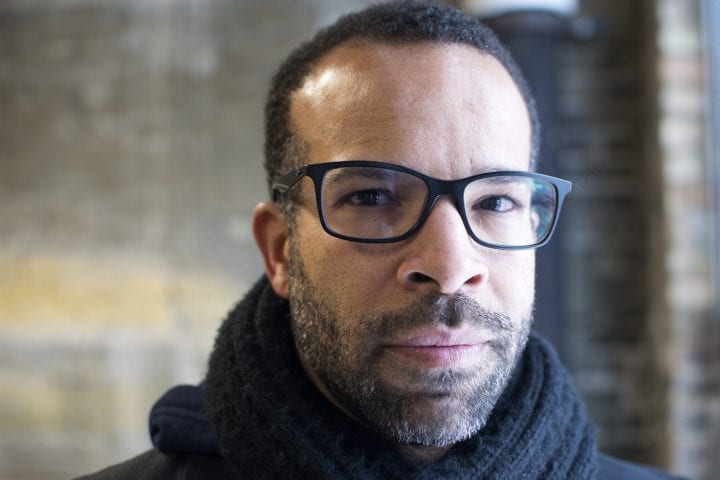The dynamic Douglas Kearney is a poet, performer, and librettist whose six books bridge thematic concerns such as politics, African American culture, the Trickster figure, and contemporary music. The format for this event will be a talk by Kearney, co-presented with the Bagley Wright Lecture Series. Q&A with WITS Writer-in-Residence Daemond Arrindell.
This event is online-only and will be pre-recorded.
Although this event has passed, you can still purchase a digital pass to view it through April 7 at 7:30 p.m. The event will be available to watch until 12:01 a.m. (PDT) on April 8.
This event is online-only and will be pre-recorded.
His most recent work, Buck Studies (Fence Books, 2016), was awarded the CLMP Firecracker Award for Poetry, the Theodore Roethke Memorial Poetry Award, and the silver medal for the California Book Award in Poetry. BOMB says Buck Studies “remaps the 20th century in a project that is both lyrical and epic, personal and historical.” Kearney describes the non-traditional layout of his poems as “performative typography.” On the relationship between his poetry and politics, he notes: “For me, the political is a part of how I see the world. My art making doesn’t begin without realizing who I am and what it means for me to be writing a poem and not doing something else.”
Kearney’s collection of writing on poetics and performativity, Mess and Mess and (Noemi Press, 2015), is a Small Press Distribution Handpicked Selection. In it, Kearney writes, “If my writing makes a mess of things, it’s not to flee understanding, but to map (mis-)understanding as a verb.” Patter (Red Hen Press, 2014), Kearney’s third poetry collection, examines miscarriage, infertility, and parenthood. The Black Automaton (Fence Books, 2009) is a National Poetry Series selection, which “flows from a consideration of urban speech, negro spontaneity and book learning.” Someone Took They Tongues (Subito Press, 2016) collects several of Kearney’s libretti, including one written in a counterfeit Afro-diasporic language. He was the guest editor for the 2015 Best American Experimental Writing.
Kearney has received a Whiting Writer’s Award and the Cy Twombly Award for Poetry, and was named a Notable New American Poet by the Poetry Society of America, He has been awarded fellowships from Cave Canem and The Rauschenberg Foundation. His work has appeared in a number of journals, including Poetry, Iowa Review, Boston Review, and Indiana Review, and anthologies, including Resisting Arrest: Poems to Stretch the Sky, Best American Poetry, Best American Experimental Writing, and What I Say: Innovative Poetry by Black Poets in America.
Raised in Altadena, CA, Kearney lives with his family a little west of Minneapolis, MN and teaches creative writing at the University of Minnesota–Twin Cities.
Daemond Arrindell is a multi-genre writer, arts educator, performer, and arts & equity consultant. He is a faculty member of TAT Lab: the Washington State Teaching Artist Training Lab; Freehold Theatre, leading poetry and theatre residencies at Monroe Correctional Complex for men for over ten years; adjunct faculty at Seattle University; senior Writer-in-Residence through Seattle Arts & Lectures’ Writers in the Schools Program; and Poet-in-Residence for Skagit River Poetry Foundation. His work has appeared in City Arts, Specter, and Crosscut magazines, as well as Poetry Northwest and Seattle Review of Books. Daemond is a Jack Straw Writer and a Jack Straw Writer’s Program curator, a VONA/Voices Writer’s Workshop fellow. He co-adapted the acclaimed novel Welcome To Braggsville by T. Geronimo Johnson into a stage production for Book-It Repertory Theater. In 2019, he performed his first one-man show, Frozen Borders, a performative exploration in imagery, poetry and emotion on the subject of the United States’ southern border.
